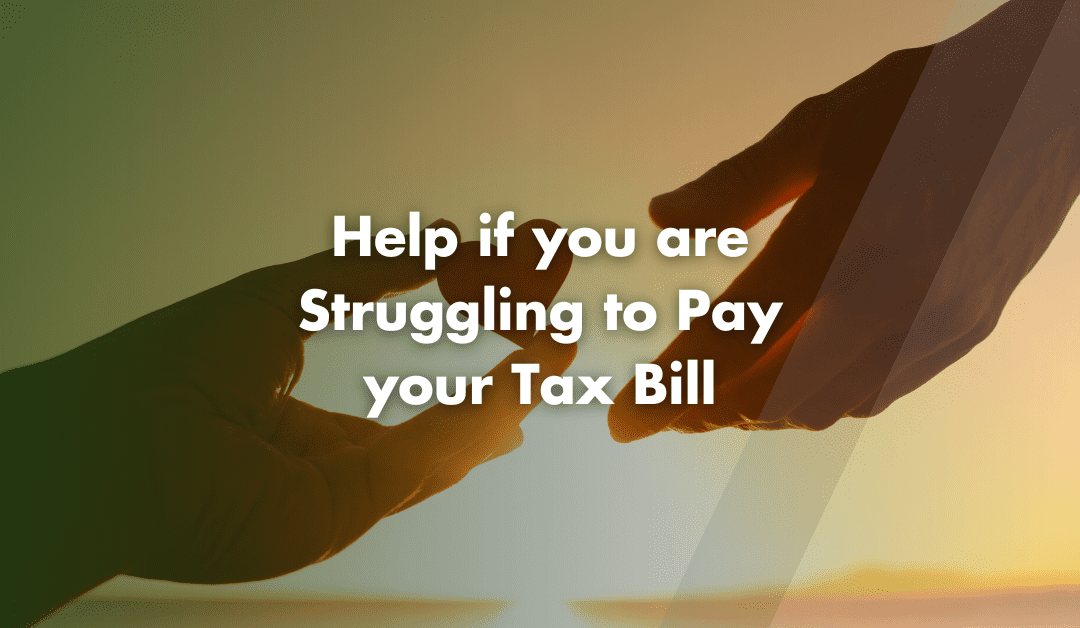Contact HMRC
If you cannot pay your tax bill on time, you should contact HMRC as soon as possible – you do not need to wait until the payment is late, and it is advisable not to do so. You will be able to discuss the help that is available to you, and may be able to pay what you owe in instalments by setting up a Time to Pay arrangement.
Time to Pay arrangements
A Time to Pay arrangement is an agreement with HMRC to pay the tax that you owe in instalments. The procedure for setting up a Time to Pay arrangement depends on the type of tax that you owe and the amount that you owe.
Self-assessment
If you are unable to pay your self-assessment tax bill, you may be able to set up a Time to Pay arrangement up online via your Government Gateway account. You can do this if:
- you have filed your latest tax return;
- you owe less than £30,000;
- you are within 60 days of the payment deadline; and
- you plan to pay off your tax debt within the next 12 months, or less.
This is the most straightforward way to arrange to pay what you owe in instalments. To avoid triggering unnecessary late payment penalties, if you know that you will struggle to meet your 31 January 2022 tax bill, it is advisable to ensure that your return is filed in good time so that a Time to Pay arrangement can be in place by this date.
Unable to make an online arrangement?
If you are unable to set up a Time to Pay arrangement online, for example, if the tax that you owe is more than £30,000, you may be able to agree an instalment payment plan by calling HMRC’s self-assessment helpline on 0300 200 3822.
Other types of tax
If you owe tax other than that due under self-assessment, or if your company cannot pay tax that it owes, you can contact HMRC’s Payment Support Service on 0300 200 3835 to discuss setting up a Time to Pay arrangement.
Information required
To set up a Time to Pay arrangement you will need to have the following information to hand:
- your unique tax reference number;
- your VAT registration number if you are a VAT-registered business;
- your bank account details; and
- details of any previous payments that you have missed.
HMRC will ask you a number of questions, including:
- how much you can afford to repay each month;
- whether you are able to pay what you owe in full;
- whether there are any other tax bills that you need to pay;
- how much money you earn;
- how much you usually spend each month; and
- what savings and investments you have.
HMRC expect that if you are able to pay the tax that you owe, you will do so. Also, if you have any savings or assets, they expect that you will use those to meet your tax obligations.
Where you are unable to pay what you owe in full, HMRC will usually set your monthly payments at about 50% of the money you have left over each month after you have paid your bills.
Once a Time to Pay agreement is in place, it is important that you pay at least the agreed amount each month. If you are able, you can pay more than the agreed amount if you want to clear the debt more quickly.
Unable to agree a Time to Pay arrangement?
If you are unable to agree a Time to Pay arrangement with HMRC, for example, if HMRC do not think you will stick to the agreement because you have defaulted in the past, you will be asked to pay what you owe in full. If you are unable to do this, HMRC may take enforcement action to collect the debt.
We can help
If you are struggling to pay tax that you owe or are worried about being able to pay your January self-assessment bill, talk to us. We can help you set up a plan to pay in instalments: Pi Accountancy | Expert Business Advice | Gloucester & Swindon (pi-accountancy.co.uk)

